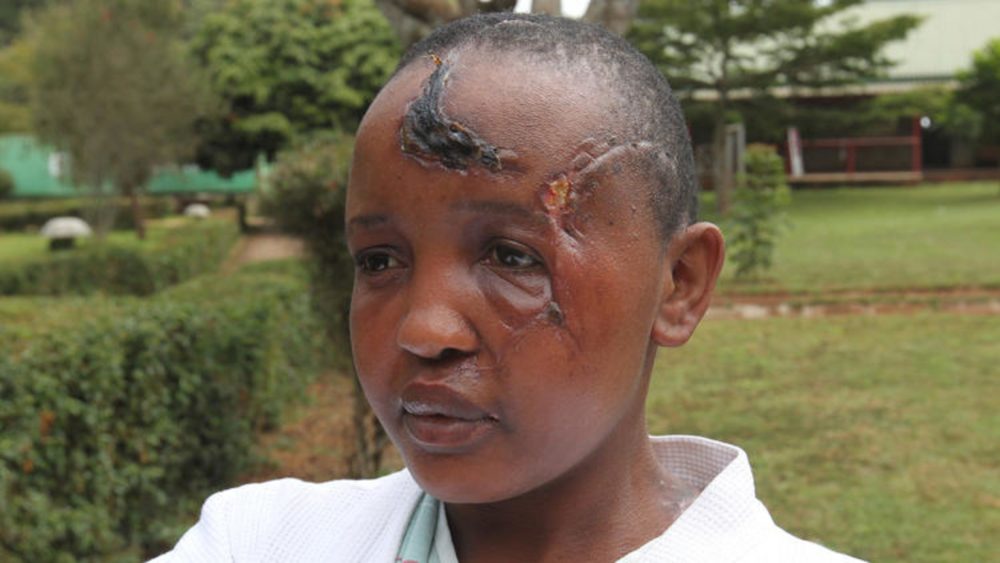Violence against women
Violence against women can cause long-term physical and mental health problems. Violence and abuse affect not just the women involved but also their children, families, and communities.
Effects of violence against women
These effects include harm to an individual’s health, possibly long-term harm to children, and harm to communities such as lost work and homelessness.
Short-term physical effects of violence against women
The short-term physical effects of violence can include minor injuries or serious conditions. They can include bruises, cuts, broken bones, or injuries to organs and other parts inside of your body. Some physical injuries are difficult or impossible to see without scans, x-rays, or other tests done by a doctor or nurse.
Short-term physical effects of sexual violence can include:
- Vaginal bleeding or pelvic pain
- Unwanted pregnancy
- Sexually transmitted infections (STIs), including HIV
- Trouble sleeping or nightmares
If you are pregnant, a physical injury can hurt you and the unborn child. This is also true in some cases of sexual assault.
If you are sexually assaulted by the person you live with, and you have children in the home, think about your children’s safety also. Violence in the home often includes child abuse. Many children who witness violence in the home are also victims of physical abuse.
Long-term physical effects of violence against women
Violence against women, including sexual or physical violence, is linked to many long-term health problems. These can include:
- Arthritis
- Asthma
- Chronic pain
- Digestive problems such as stomach ulcers
- Heart problems
- Irritable bowel syndrome
- Nightmares and problems sleeping
- Migraine headaches
- Sexual problems such as pain during sex
- Stress
- Problems with the immune system
Many women also have mental health problems after violence. To cope with the effects of the violence, some women start misusing alcohol or drugs or engage in risky behaviours, such as having unprotected sex. Sexual violence can also affect someone’s perception of their own bodies, leading to unhealthy eating patterns or eating disorders. If you are experiencing these problems, know that you are not alone. There are resources that can help you cope with these challenges.
Mental health effects of violence against women
If you have experienced a physical or sexual assault, you may feel many emotions — fear, confusion, anger, or even being numb and not feeling much of anything. You may feel guilt or shame over being assaulted. Some people try to minimize the abuse or hide it by covering bruises and making excuses for the abuser.
If you’ve been physically or sexually assaulted or abused, know that it is not your fault. Getting help for assault or abuse can help prevent long-term mental health effects and other health problems.
Long-term mental health effects of violence against women can include:
- Post-traumatic stress disorder (PTSD). This can be a result of experiencing trauma or having a shocking or scary experience, such as sexual assault or physical abuse. You may be easily startled, feel tense or on edge, have difficulty sleeping, or have angry outbursts. You may also have trouble remembering things or have negative thoughts about yourself or others. If you think you have PTSD, talk to a mental health professional.
- Depression. Depression is a serious illness, but you can get help to feel better. If you are feeling depressed, talk to a mental health professional.
- Anxiety. This can be general anxiety about everything, or it can be a sudden attack of intense fear. Anxiety can get worse over time and interfere with your daily life. If you are experiencing anxiety, you can get help from a mental health professional.
Other effects can include shutting people out, not wanting to do things you once enjoyed, not being able to trust others, and having low-esteem.
Many women who have experienced violence cope with this trauma by using drugs, drinking alcohol, smoking, or overeating. Research shows that about 90% of women with substance use problems had experienced physical or sexual violence.
Substance use may make you feel better in the moment, but it ends up making you feel worse in the long-term. Drugs, alcohol, tobacco, or overeating will not help you forget or overcome the experience.
AHO response to violence against women
AHO has declared violence against women public health enemy number one as Africa has the highest prevelance at 45.6%.
AHO is setting up some health-care settings, such as antenatal services and HIV testing, may provide opportunities to support survivors of violence, provided certain minimum requirements are met.
- Health providers have been trained how to ask about violence.
- Standard operating procedures are in place.
- Consultation takes place in a private setting.
- Confidentiality is guaranteed.
- A referral system is in place to ensure that women can access related services.
- In the case of sexual assault, health care settings must be equipped to provide the comprehensive response women need – to address both physical and mental health consequences.
AHO stresses the importance of using these guidelines to incorporate issues of violence into the medical and nursing curricula as well as during in-service training.


